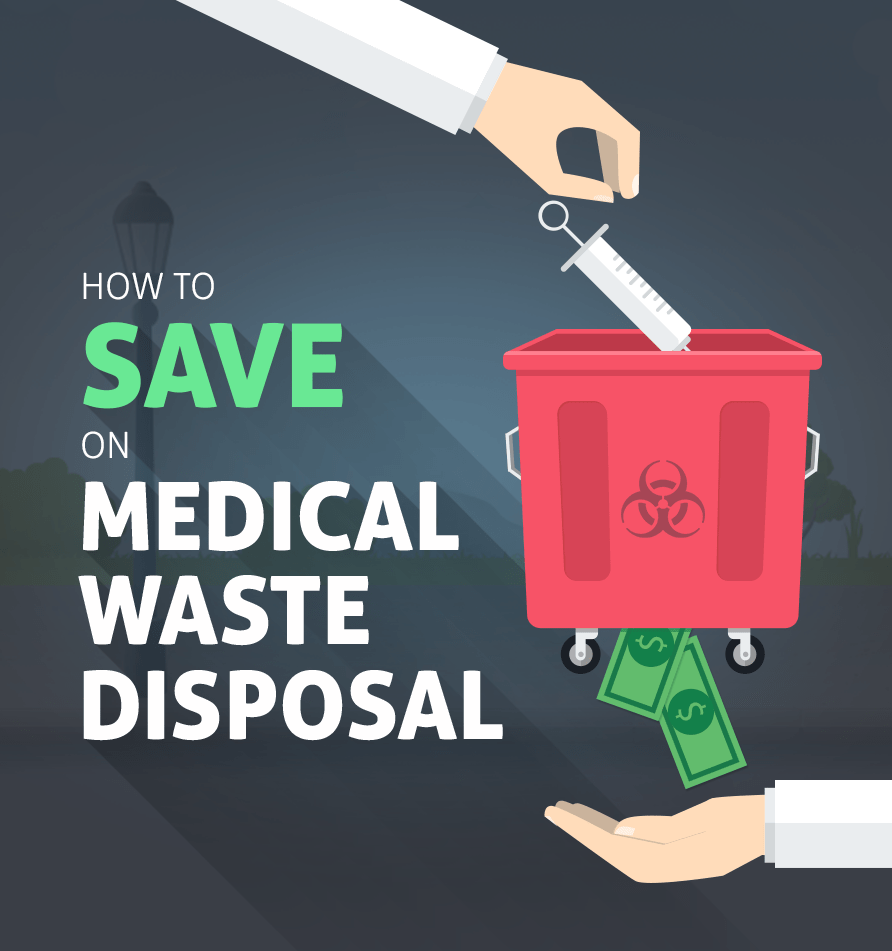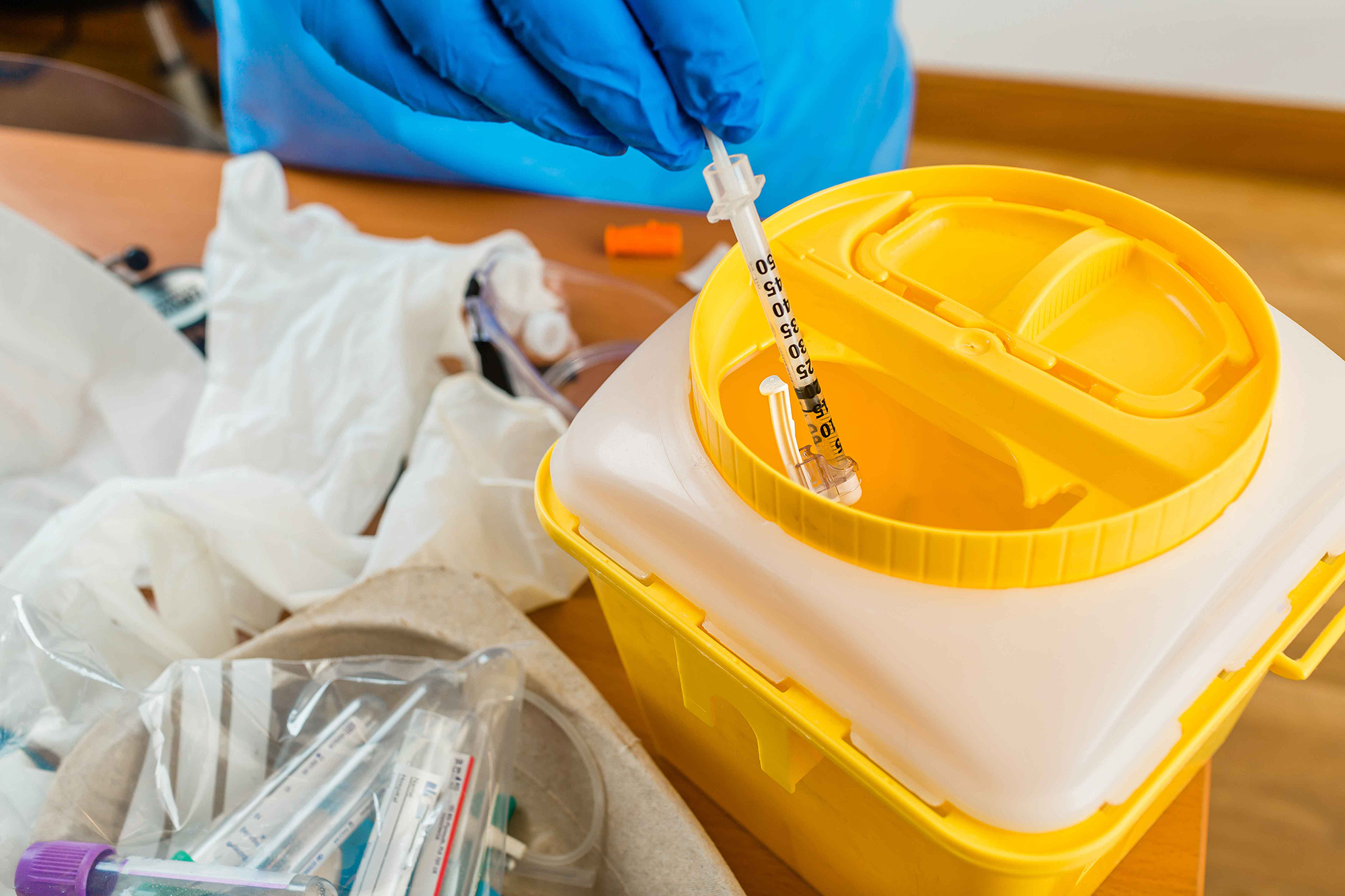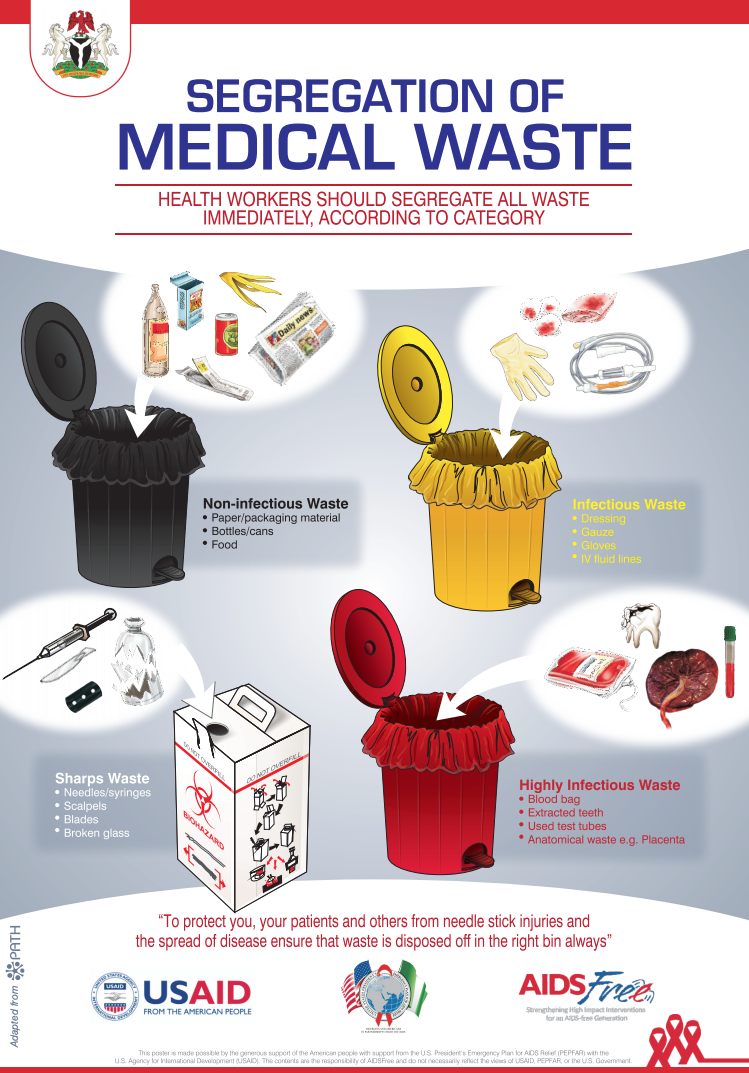Comprehensive Medical Waste Disposal Solutions: Ensuring a Healthy Atmosphere
Wiki Article
Making Certain Safe Handling and Disposal of Medical Waste
Making certain secure handling and disposal of clinical waste is of extremely important value in medical care setups. Incorrect management of medical waste can posture substantial dangers to the atmosphere, public health, and medical care workers. In this introduction, we will discover the relevance of appropriate clinical waste administration, the risks associated with inappropriate handling and disposal, as well as the guidelines and approaches that can be applied to ensure its risk-free disposal.Value of Appropriate Clinical Waste Administration
Correct clinical waste monitoring is of utmost value in ensuring the safety and well-being of healthcare specialists, clients, and the public. Medical waste describes any type of waste generated by health care facilities during the medical diagnosis, therapy, or immunization of animals or people. This waste can pose significant health and wellness dangers if not taken care of and disposed of effectively.
One of the key reasons why correct medical waste administration is essential is to avoid the spread of contagious conditions. Medical waste, such as utilized needles, infected dressings, and organic materials, can bring unsafe microorganisms. Otherwise dealt with and dealt with appropriately, these virus can be transmitted to healthcare workers, people, waste trainers, and even the public, leading to the possible episode of conditions.
Additionally, proper medical waste administration aids safeguard the atmosphere - medical waste disposal. Medical waste has hazardous materials, including chemicals, drugs, and radioactive compounds. When not taken care of suitably, these substances can pollute dirt, water bodies, and the air, posturing a substantial threat to ecological communities and public health
In addition, reliable clinical waste monitoring ensures compliance with global criteria and neighborhood laws. Federal governments and regulative bodies have actually developed procedures and guidelines to ensure the safe handling, storage space, transport, and disposal of clinical waste. Following these laws is necessary to prevent legal consequences and keep the online reputation and reputation of medical care facilities.
Risks of Improper Handling and Disposal

People can also be subjected to these infectious conditions if medical waste is not correctly thrown away. If contaminated needles or various other sharps are not disposed of in designated puncture-proof containers, they might accidentally puncture clients, leading to prospective infections. If clinical waste is not set apart appropriately, there is a threat of cross-contamination between different kinds of waste, more raising the chances of illness transmission.
Incorrect disposal of clinical waste can additionally have damaging effects on the setting and the basic public. If clinical waste is not treated and dealt with properly, it can infect water sources, soil, and air, causing the spread of pollutants and diseases. This can have long-lasting consequences on environments and public wellness.
Standards for Safe Handling of Medical Waste
Implementing efficient procedures for the secure handling of clinical waste is essential in guaranteeing the security of medical care professionals, clients, and the general public. These standards are crucial in lessening the dangers related to the handling and disposal of clinical waste, such as infections, injuries, and environmental pollution.Most you can look here importantly, healthcare facilities must establish a thorough waste management strategy that follows local, nationwide, and international laws. This strategy should consist of clear directions on waste segregation, product packaging, storage space, labeling, and transportation. It is crucial to divide various kinds of waste, such as sharps, contagious products, drugs, and non-hazardous waste, to prevent cross-contamination and advertise safe disposal.
Furthermore, medical care employees need to get thorough training on correct waste handling methods. They must be educated on the prospective risks of medical waste, the appropriate use of personal protective equipment (PPE), and the appropriate procedures for managing, transporting, and dealing with different types of waste.
Additionally, healthcare facilities must regularly keep track of and audit their waste administration methods to make sure compliance with standards. This consists of conducting normal examinations, assessing waste handling treatments, and offering responses and training to employee.
Efficient Methods for Garbage Disposal
To make sure the safe handling and disposal of clinical waste, it is necessary to utilize effective approaches for garbage disposal. Medical waste can pose significant risks to public health and the setting if not taken care of and taken care of effectively. Health care centers and waste administration companies must carry out proper methods to minimize these threats.It includes dividing different kinds of clinical waste based on their features. Health care facilities must provide clear guidelines and training to team members on exactly how to segregate waste properly.

Furthermore, healthcare facilities must team up with certified waste monitoring firms to ensure proper disposal of medical waste. These companies have the know-how and equipment required to safely dispose and take care of of medical waste in compliance with regulations and finest methods.
Training and Education for Healthcare Professionals
Health care experts play an essential duty in ensuring the safe handling and disposal of clinical waste via extensive training and education. It is crucial for doctor to have a deep understanding of the possible risks linked with medical waste and the proper procedures for its monitoring. By receiving correct training, healthcare professionals can lessen the possible transmission of contagious diseases, avoid environmental contamination, and shield both themselves and the public.
In addition, training programs ought to stress the use of personal protective tools (PPE) and proper hand hygiene techniques when dealing with clinical waste. medical waste disposal. Health care professionals should understand exactly how to properly get rid of and use of PPE to shield themselves from prospective exposure to unsafe materials. They need to likewise be informed on the relevance of regular handwashing and the correct use of hand sanitizers to lessen the spread of transmittable conditions
Proceeding education and routine updates on clinical waste management techniques are crucial for health care specialists. As standards and laws develop, it is necessary to maintain doctor educated concerning any type of adjustments in methods and best practices. This will make certain that they stay up-to-date and maintain a high requirement of safety and security in dealing with and disposing of clinical waste.
Final Thought
In final thought, proper handling and disposal of medical waste is essential to guarantee the safety and security of healthcare professionals, patients, and the setting. By sticking to these practices, we can reduce the prospective dangers linked with medical waste.Clinical waste refers to any type of waste generated by healthcare centers throughout the medical diagnosis, treatment, or booster shot of people or animals. If medical waste is not segregated effectively, there is a danger of cross-contamination in between various types of waste, more boosting the chances of condition transmission.
It is important to divide various kinds of waste, such as sharps, contagious materials, pharmaceuticals, and non-hazardous waste, to avoid cross-contamination and advertise risk-free disposal. WasteX Medical Waste Disposal.
To make sure the safe handling and disposal of medical waste, it is necessary to utilize efficient techniques for waste disposal. In addition, healthcare centers must develop a regular waste collection and transport schedule to protect against waste buildup and lessen the threat of accidents or contamination.
Report this wiki page